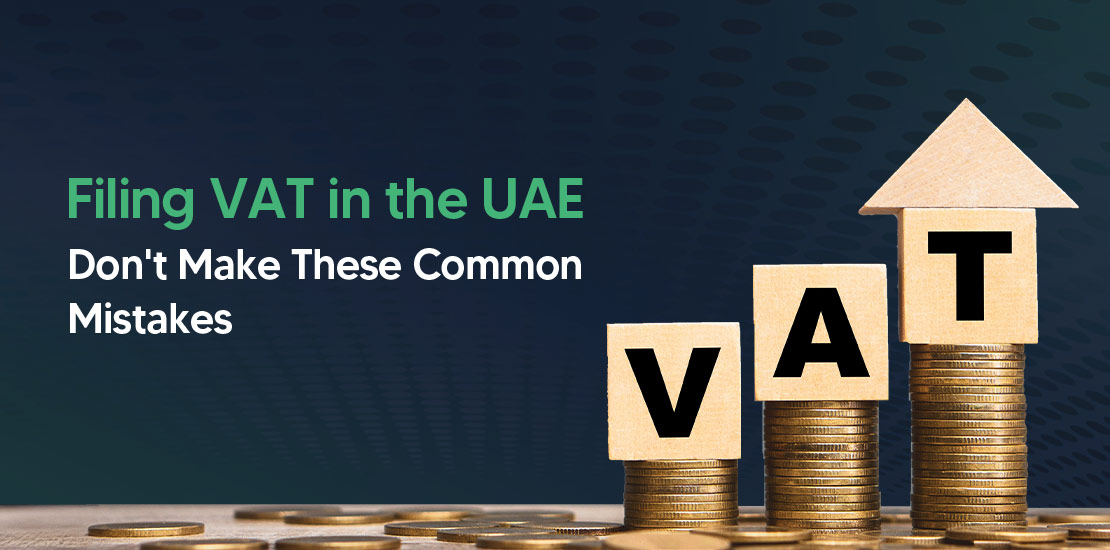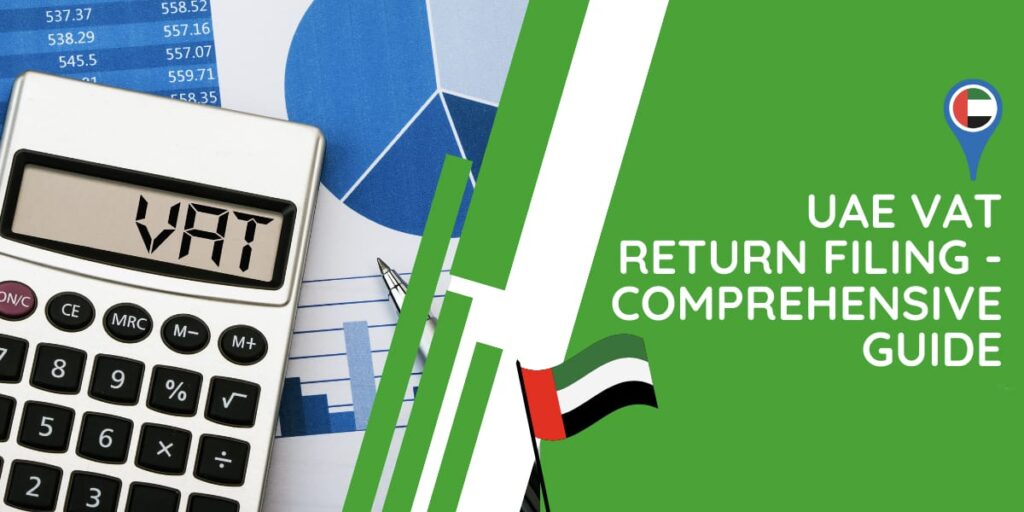Navigating the complexities of UAE VAT compliance is a critical task for businesses operating in the UAE’s vibrant economy. Since the introduction of Value Added Tax (VAT) on January 1, 2018, companies have had to adapt to a new layer of financial responsibility. UAE VAT compliance involves registering with the Federal Tax Authority (FTA), collecting and remitting VAT, issuing compliant invoices, and mastering the VAT return filing process UAE. Failure to comply can lead to UAE VAT penalties and fines, which range from AED 1,000 for late filings to AED 20,000 for delayed registration. These fines can disrupt cash flow for small businesses and damage the reputation of larger enterprises.
This comprehensive guide provides a detailed UAE VAT compliance checklist to help you streamline the VAT return filing process UAE, meet regulatory requirements, and avoid UAE VAT penalties and fines. Whether you’re a startup in Dubai’s bustling markets, a retailer in Sharjah, or a multinational in Abu Dhabi, these steps will empower you to manage your VAT obligations confidently in 2025. Let’s dive into the essentials of staying compliant and protecting your business.
Understanding VAT and Its Importance in the UAE
VAT in the UAE is a 5% consumption tax applied to most goods and services, with exemptions for sectors like healthcare, education, and specific financial services. UAE VAT compliance ensures businesses collect VAT on taxable supplies, remit it to the FTA, and maintain accurate records for audits. The VAT return filing process UAE is central to this, requiring businesses to report their sales and purchases periodically. Non-compliance can trigger UAE VAT penalties and fines, such as AED 10,000 for incomplete records or AED 5,000 for non-compliant invoices.
For a small café in Al Ain, these fines could strain budgets, while larger firms face the risk of audits that scrutinize their compliance history. Understanding the stakes and implementing a robust compliance strategy is essential for financial stability and credibility with stakeholders.
Who Needs to Register for VAT?
Determining whether your business must register is a foundational step in UAE VAT compliance. The FTA provides clear thresholds:
- Mandatory Registration: Businesses with taxable supplies or imports exceeding AED 375,000 in the past 12 months, or projected to exceed this in the next 30 days, must register within 30 days.
- Voluntary Registration: Companies with turnovers between AED 187,500 and AED 375,000 can register to reclaim input VAT or enhance credibility.
- Non-Resident Businesses: Foreign entities making taxable supplies in the UAE must register if no other party accounts for the tax.
For example, a Dubai-based e-commerce store with AED 400,000 in annual turnover must register to avoid UAE VAT penalties and fines of AED 20,000 for late registration. A freelancer earning AED 200,000 might opt for voluntary registration to recover VAT on business expenses. Early registration ensures you’re prepared for the VAT return filing process UAE.
Step-by-Step VAT Registration Process
To meet UAE VAT compliance requirements, follow these steps for registration:
- Access the EmaraTax Portal: Log in to eservices.tax.gov.ae with your business credentials.
- Prepare Documentation: Gather your trade license, Emirates ID, passport copies, and financial statements showing turnover.
- Complete the Application: Fill out the online form, including details for your Tax Registration Number (TRN).
- Non-Resident Requirements: Appoint a local fiscal representative if operating from outside the UAE.
Upon approval, you’ll receive a TRN, which must appear on all VAT-related documents. A logistics firm in Jebel Ali, for instance, needs its TRN on invoices to comply with the VAT return filing process UAE. Missing this step can lead to UAE VAT penalties and fines, so accuracy is critical.
Maintaining Accurate Records for Compliance
Record-keeping is a cornerstone of UAE VAT compliance. The FTA requires businesses to retain records for five years, including:
- Sales and purchase invoices.
- Credit notes, debit notes, and receipts.
- Financial statements and bank reconciliations.
- Customs documents for imports and exports.
A restaurant in Dubai Marina must track VAT on meals sold and input VAT on ingredients. Cloud-based accounting software can automate this, reducing errors during the VAT return filing process UAE. Failing to maintain records can result in UAE VAT penalties and fines of AED 10,000 for the first offense, escalating to AED 50,000 for repeat violations within 24 months. Regular audits ensure your records meet FTA standards.
Mastering the VAT Return Filing Process UAE
The VAT return filing process UAE is a core component of UAE VAT compliance. Most businesses file quarterly, while those with turnovers exceeding AED 150 million file monthly. Returns are due within 28 days of the tax period’s end. Follow these steps:
- Log in to EmaraTax: Access the VAT 201 form with your credentials.
- Compile Financial Data: Gather output VAT (sales), input VAT (purchases), and net VAT owed.
- Verify Entries: Ensure taxable, zero-rated, and exempt supplies are accurately reported.
- Submit and Pay: File the return and settle any VAT due by the deadline.
For example, a retail store in Sharjah with AED 750,000 in quarterly sales, generating AED 37,500 in output VAT and AED 30,000 in input VAT, owes AED 7,500. Missing the deadline triggers UAE VAT penalties and fines of AED 1,000 for the first offense, doubling to AED 2,000 for repeats. Accurate filings are essential for compliance.
Issuing Compliant Tax Invoices
Every taxable supply requires a valid tax invoice, issued within 14 days. Mandatory details include:
- Sequential invoice number.
- TRN of both supplier and recipient.
- Description of goods or services, unit price, and VAT rate.
- Total VAT amount in AED.
A tech startup in Dubai Media City must ensure invoices for software licenses reflect the 5% VAT rate and include all required fields. Non-compliant invoices attract UAE VAT penalties and fines of AED 5,000 per instance. Reviewing invoices before the VAT return filing process UAE ensures compliance with FTA standards.
Avoiding Common Compliance Mistakes
Errors in UAE VAT compliance can lead to costly UAE VAT penalties and fines. Common pitfalls include:
- Late Registration: Monitor turnover monthly to register on time.
- Calculation Errors: Use automated tools to ensure accurate VAT computations.
- Incomplete Records: Conduct quarterly audits to verify documentation.
- Missed Deadlines: Set reminders for the VAT return filing process UAE.
A construction firm in Ras Al Khaimah misclassifying expenses might face UAE VAT penalties and fines of AED 3,000 for incorrect filings. Regular reviews can prevent such errors, ensuring compliance with FTA regulations.
Correcting Errors in VAT Returns
If you identify an error in a filed return, act promptly to avoid UAE VAT penalties and fines. For errors under AED 10,000, adjust in the next return. For larger errors, submit a voluntary disclosure using Form 211 within 20 days. Penalties for disclosures start at AED 1,000, but timely corrections reduce audit risks. A trading firm discovering an AED 15,000 overpayment can use Form 211 to correct it, ensuring a smooth VAT return filing process UAE.
Penalties for Non-Compliance
The FTA enforces strict UAE VAT penalties and fines to ensure compliance:
- Late Registration: AED 20,000.
- Late Filing: AED 1,000 (first offense), AED 2,000 (repeat).
- Late Payment: 2% immediately, plus 4% monthly, up to 300% of unpaid VAT.
- Incorrect Invoicing: AED 5,000 per invoice.
- Record-Keeping Failures: AED 10,000 (first offense), AED 50,000 (repeat).
A manufacturing business missing multiple deadlines could face UAE VAT penalties and fines exceeding AED 50,000, impacting profitability. Proactive compliance prevents these costly errors.
Strategies to Streamline VAT Compliance
Simplify UAE VAT compliance with these best practices:
- Use Technology: Adopt VAT-compliant software for accurate calculations and record-keeping.
- Conduct Audits: Schedule quarterly reviews to ensure compliance with the VAT return filing process UAE.
- Train Staff: Educate your team on FTA regulations to avoid errors.
- Seek Expert Guidance: Consult professionals to navigate complex transactions.
An e-commerce platform in Dubai can use software to track zero-rated exports, ensuring compliance during the VAT return filing process UAE. These strategies minimize the risk of UAE VAT penalties and fines.
Benefits of Robust VAT Compliance
Adhering to UAE VAT compliance offers multiple benefits. Accurate filings enhance credibility with banks and partners, while claiming input VAT reduces costs. A logistics firm recovering VAT on fuel expenses could save thousands annually, freeing up capital for expansion. Compliance also prepares you for FTA audits, minimizing disruptions and avoiding UAE VAT penalties and fines.
Preparing for 2025 VAT Updates
The UAE’s tax landscape is evolving. In 2025, stricter e-invoicing rules for B2B and B2G transactions will take effect, starting July 2026 for larger firms. Staying informed through FTA announcements ensures your business is ready for changes in the VAT return filing process UAE. Regular audits can help you adapt to new requirements, keeping your operations penalty-free.
The Role of Professional Support in Compliance
Navigating UAE VAT compliance can be complex, especially for businesses with cross-border transactions. Professional tax advisors streamline the VAT return filing process UAE, from registration to audit preparation. They identify savings opportunities, such as optimizing input VAT claims, and ensure compliance with FTA standards. A manufacturing firm in Ajman, for example, might rely on experts to avoid UAE VAT penalties and fines, boosting profitability.
Conclusion
Mastering UAE VAT compliance is essential for businesses aiming to thrive in the UAE’s competitive market. By understanding the VAT return filing process UAE, registering on time, maintaining accurate records, and filing returns correctly, you can avoid UAE VAT penalties and fines. At Dubai Business and Tax Advisors, we specialize in guiding businesses through their VAT obligations, offering tailored solutions to ensure compliance and support growth. Let us help you navigate the UAE’s tax landscape with confidence in 2025.







